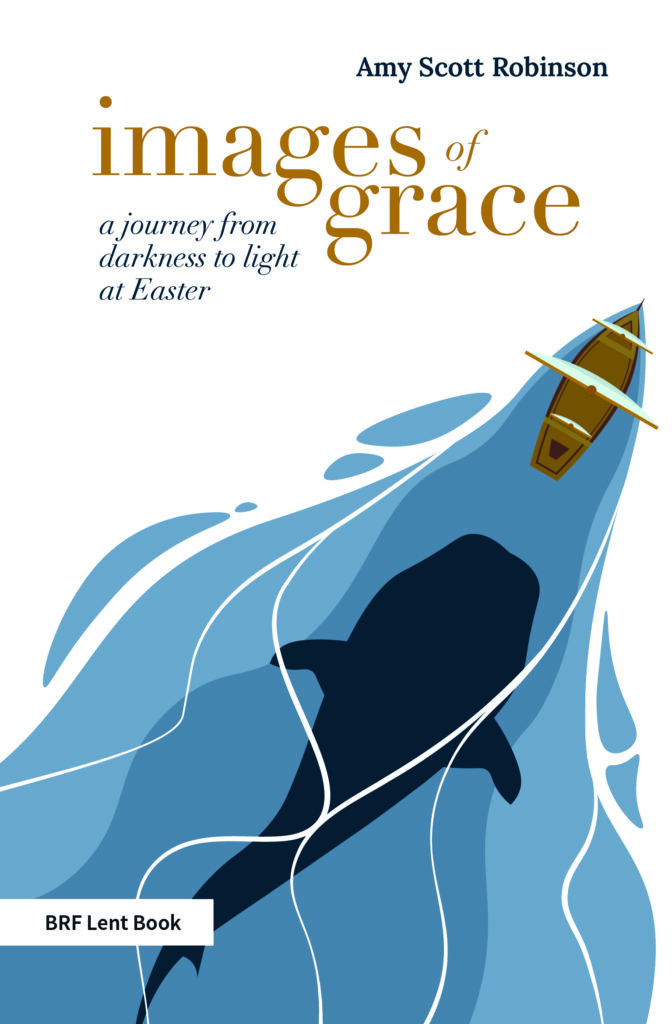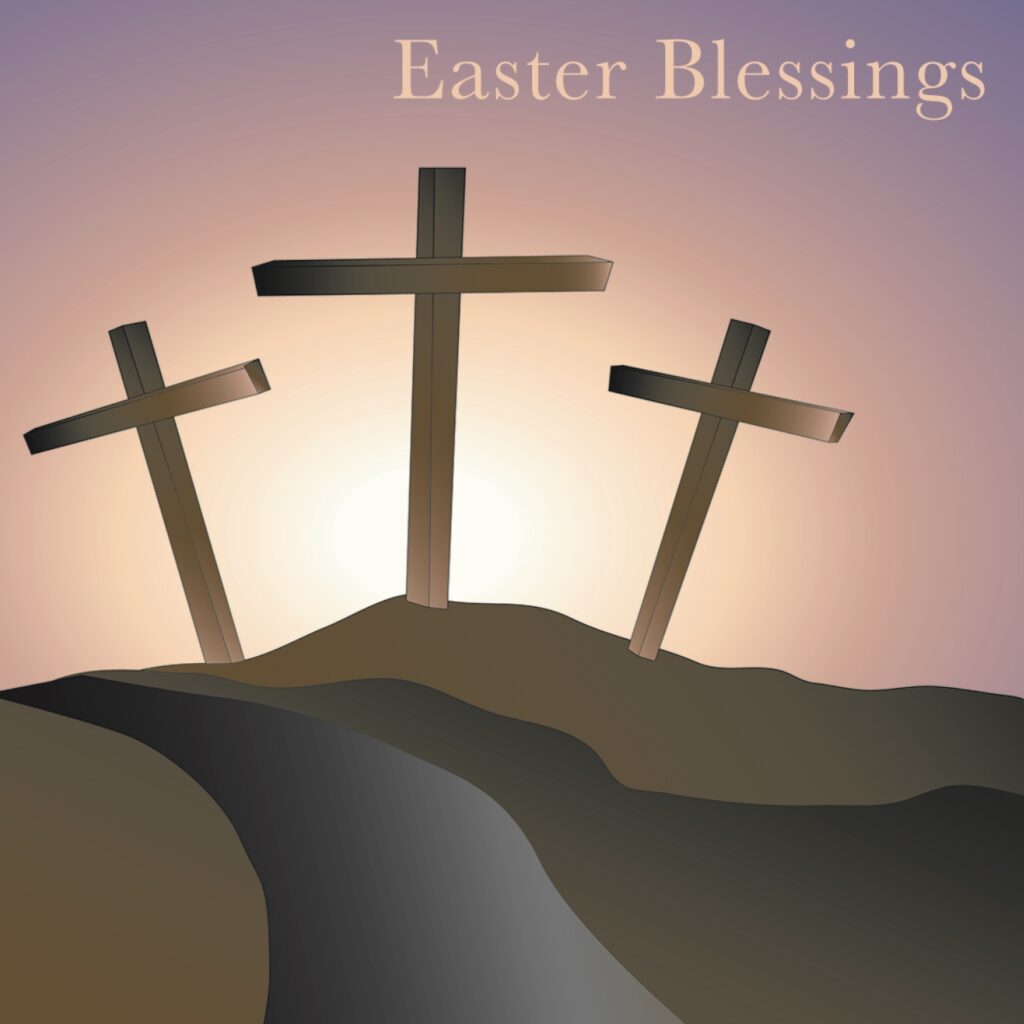The last of our ‘Preparing for Lent’ articles is an edited extract from our 2023 Lent book, Images of Grace by Amy Scott Robinson. Amy explores images of sin and repentance for Ash Wednesday, the beginning of Lent.
19 February 2023
Preparing for Lent: a richer understanding
At the heart of the Christian message is a collection of abstract nouns: love, sin, repentance, forgiveness, grace – it is difficult to explain the gospel message without using some or all of these words. The problem with abstract nouns is that, by definition, their meaning is hard to articulate, even to ourselves, let alone in conversation with others.
The only way to understand huge abstract concepts is to look at images of them. The Bible offers us a wide range of images for each of these concepts. It’s important to have lots of metaphors and similes to describe abstract things, because no single one of them is exactly accurate. The more we have, the better the understanding that gets built up by all the different pictures.
Lent is traditionally a time of repentance, fasting and prayer as we prepare to celebrate our salvation at Easter. This Lent, I hope that you will enjoy using this book to approach the concepts of repentance, sin, forgiveness and grace from some new angles, and arrive at Holy Week and Easter with a fresher, richer understanding of God’s grace through the death and resurrection of Jesus.
We begin with the story of David.
The story of David
Have mercy on me, O God, according to your steadfast love;
Psalm 51:1–2, 7 (ESV)
according to your abundant mercy blot out my transgressions.
Wash me thoroughly from my iniquity, and cleanse me from my sin…
Purge me with hyssop, and I shall be clean; wash me, and I shall be whiter than snow.
Psalm 51 is said to have been written by King David after his disastrous affair with Bathsheba. The story, told in 2 Samuel 11—12, plays out like a Shakespearean tragedy: from the moment he sees and desires Bathsheba, David is dragged into deeper and deeper layers of sin and deceit. Only when confronted by the prophet Nathan does David fully see and admit his sin.
His repentance is poured out in a desperate prayer, which appears not in the book of 2 Samuel, but in the Psalms. In the text, Psalm 51 is attributed to David ‘when the prophet Nathan came to him, after he had gone in to Bathsheba’.
‘The story plays out like a Shakespearean tragedy: David is dragged into deeper and deeper layers of sin and deceit.’
While reading commentaries on Psalm 51, I was interested to learn that there are three Hebrew words used for sin, each given a different English translation in most versions: transgression, iniquity and sin. The words have different roots, and each of them is a little metaphor. The root of the word translated ‘transgression’ contains the image of rebelling, going in the opposite direction or against something. The root of the word translated ‘iniquity’ holds the idea of something bent or twisted out of shape. And the root of the word translated ‘sin’ means to miss, in the sense of a footballer hitting the goalpost or an arrow flying wide of the target. All three words appear in the first two verses of the psalm and continue to be used interchangeably throughout.
As ever with such concepts, having more than one image or metaphor to consider is useful: it helps us not to try to pin down, or box in, ideas that are larger than our human experience. David, in this psalm, uses several different poetic images for sin that go far beyond these simple words. Alongside David, we can discover what it means to have sinned, what that experience is like and why it is important in terms of our relationship with God.
David: sin is a stain that needs cleaning
As we saw earlier, even the etymology of certain words can contain further metaphors. One example of this is the word ‘impeccable’, which has come to mean something like ‘spotless’ in modern use. It comes from Latin words meaning ‘without sin’. So there, hiding away in everyday use, is the notion that sin is like a dirty stain, and that to be without it is to be clean.
The last time I bought a car, the salesman tried to persuade me to pay quite a bit of extra money to have the upholstery treated with a stain-repellent formula. Apparently this magical stuff not only made the seats easier to clean, but also, by some miracle of chemistry, stopped them from getting dirty in the first place. Nonetheless, I decided against buying the product and returned to my old car with its trodden-in crumbs, toddler handprints and inexplicable red wax melted into one of the seats.
Unlike my salesman’s upholstery, the human soul is not good at repelling the stain of sin. In fact, more like my own car, we seem to be attracted to it. Once sin lands on us, it clings and spreads. It melts into the seats like red wax. It stains like beetroot juice on a white tablecloth.
This had been exactly David’s experience as he made his way steadily through the ten commandments, breaking the lot: envying another man’s wife, stealing, adultery, bearing false witness, murder.
‘The human soul is not good at repelling the stain of sin.’
Eventually, having spent a long time trying to cover and hide his sin, David realised that in God’s eyes it was, and always had been, like a stain: obvious and shameful. The longer you leave a stain, the harder it is to get out. David’s sin was indelible. Lives had been taken and destroyed, a family ripped apart, marriage vows broken and forcibly made. Yet his immediate reaction to Nathan was: ‘I have sinned against the Lord’ (2 Samuel 12:13). He knew that, for all the people he had hurt, it was God who saw the stain and only God who could clean it.
The many verbs David uses in these verses of Psalm 51 pour out in a desperate plea: blot out, wash me, cleanse me, purge me! Now that David has been presented with the truth about his sin, he desperately and urgently wants to get rid of it. But this is not something that David is able to sort out for himself: he brings it to God to be cleaned thoroughly, ‘whiter than snow’. There were bleaching techniques in ancient Israel, but the idea of cloth becoming ‘whiter than snow’ would have been a bold exaggeration in David’s day, an image that underlines how only God would be able to achieve the kind of impossible spotlessness required.
Lessons for today
It’s true that for Christians, because of Jesus, we know that we are forgiven, loved and accepted. The sacrificial blood David pleads for comes from the cross. All the same, if we become complacent or neglectful about some of the stains that have soaked in, we risk forgetting how momentous that really is.
And there are some stains that we prefer to cover up, rather than offering them to God to be cleaned. There are some things that feel too terrible, too impossible to imagine they could ever be forgiven. That’s when it’s good to remember that God is not a used-car salesman. He really can deliver on his promise to make us as spotless as snow.
‘God really can deliver on his promise to make us as spotless as snow.’
A prayer
Lord, thank you for blotting out my transgressions. Wash me thoroughly, cleanse me, purge me. If you wash me, I really will be clean. Amen

Amy Scott Robinson is an author and performance storyteller. After studying English at Christ’s College, Cambridge, she trained as a teacher and began writing for charities and providers of liturgical resources, before publishing her own works on puppetry and story. She is married to the rector of four rural parishes in Suffolk, where she is also the benefice children’s worker. She lives in the rectory and has two children, two guinea pigs, and at any given moment, a half-finished cup of cold tea.

Pray with us
In the words of this prayer for Lent from the BRF Book of 100 Prayers by Martyn Payne:
Creator God and Saviour,
who chose in love to make this world,
inviting us to share in its care, renewal and nurture,
forgive us for the many wrong choices we have made.
This Lent, we choose again to join with you
in the reconciling and healing of all things,
as by your Spirit you both renew the face of the earth
and also restore us in your image
through the death and resurrection of
Jesus Christ our Lord.
Amen


Our range of beautiful Easter cards, from traditional to contemporary is available to order now. Every pack of cards sold helps support BRF and its ministries. Thank you!
